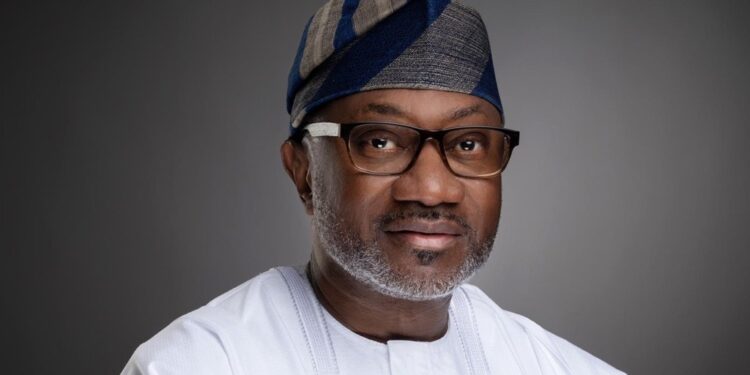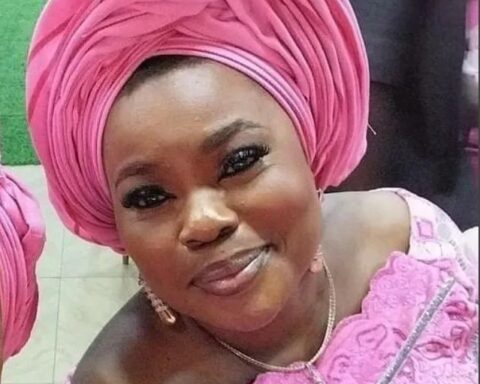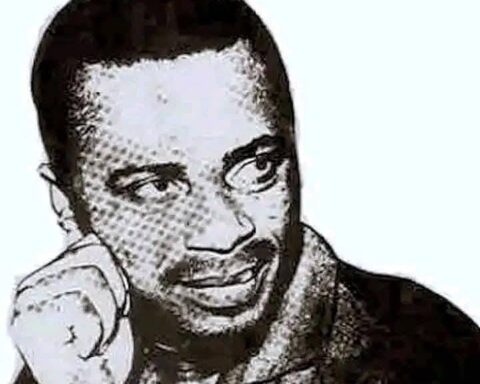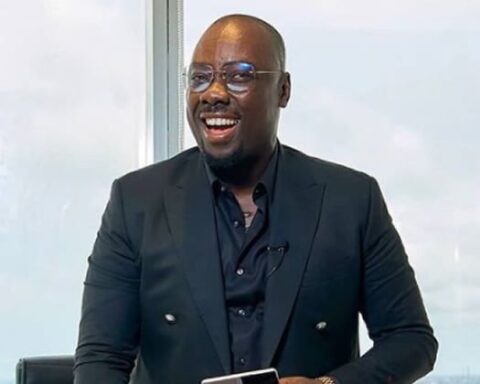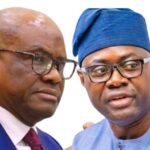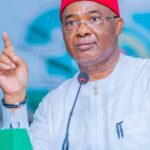By Tony Onyima, Ph.D.
For billionaire Femi Otedola, the 2008 global financial meltdown was more than just an economic crisis. It was a personal catastrophe that shook him to his core. In his newly released 286-page autobiography, Making It Big: Lessons From a Life in Business, Otedola bares it all: the dizzying heights of wealth, the devastating crash that wiped him out, and the painful road to redemption.
The numbers are staggering. At the time, Otedola owed eight Nigerian banks a combined N220 billion. “All told, I lost more than $1,317,000,000 — N220 billion — through the naira devaluation, the plunge in oil prices from US$147 to US$34, and the stock market crash. I took the loans at N117/US$1, but had to pay back at N165/US$1 following the devaluation,” he recounted (page 189).
The debts were spread across the country’s leading banks: Access Bank (N25 billion), Zenith Bank (N75 billion), GTBank (N38 billion), UBA (N33 billion), FCMB (N26 billion), Intercontinental Bank (N14 billion), Union Bank (N5 billion), and Bank PHB (N6 billion).
For Otedola, the crash was nothing short of a nightmare. “One moment, I was the darling of the banks, who did everything in the world to court me, give me loans, and take deposits from me. They would even send bewitching ladies to make their offers more persuasive. Then suddenly, I was waking up to the sight of hefty, barrel-chested men standing menacingly at my gate, waiting for me to step out of my compound.”
Most of the banks showed sympathy, but not Access Bank. Otedola recalls one particularly bruising encounter: “One of the worst days for me was when Aigboje Aig-Imoukhuede, then Managing Director of Access Bank Plc, came to my office with his deputy, Herbert Wigwe, and very matter-of-factly told me to sell my assets. Over time, I thought we had become friends, but it was now clear I was just another customer. Friendship disappeared in a flash. That was one of the harsh realities of life I had to deal with.”
The burden eventually crushed his flagship company, Zenon Petroleum, but also gave birth to a new chapter in his life. “I made the painful decision to get out of debt as quickly as possible, so I could try to rebuild my life. The banks wanted me to restructure the debts, but I declined. Instead, I chose to repay everything,” he wrote.
It was a radical move. A professional valuer was engaged to assess his assets. Otedola gave up nearly everything: a portfolio of 150 flats spread across Lagos, Port Harcourt, and Abuja; prime land; storage tanks; and his massive investments in the banking sector. “I had been the largest individual investor in the sector. I gave up my shares,” he said. He also relinquished his significant stakes in Africa Finance Corporation, Mobil, Texaco, and Visafone.
Eventually, the Asset Management Corporation of Nigeria (AMCON) stepped in, buying up his N220 billion debt for N140 billion. The deal meant the banks had to take a painful N80 billion “haircut.”
Yet even that came with irony. At the time, Otedola had ordered his first private jet, a Bombardier Global 5000, for $65 million. “I handed the papers over to AMCON as part of the settlement. The jet was still being built. AMCON downgraded it during configuration to the Global 605 model, costing $33 million. AMCON took delivery in 2012, and the plane is now part of the Nigerian presidential fleet,” he revealed.
By 2012, Otedola had cleared his debts and was back at square one, starting afresh with just his 21% equity in AP and three properties—one each in Victoria Island, Ikoyi, and Abuja. Looking back, he admits his management style contributed to Zenon’s fall. “I paid dearly for ignoring the fundamentals that strengthen enterprises and render them more professional. Whatever form a business adopts—sole proprietorship, partnership, or limited liability company—you must never ignore the basics”, he said.
From the ashes of Zenon, however, a new Otedola emerged. In the book, he outlines seven key steps that guided his reinvention and return to business success. It is a story not just of financial loss, but of resilience – the tale of a man who fell from the top and clawed his way back, scarred but wiser. “Luckily, I got a second chance to start from scratch, and learned from – and committed to not repeating – my mistakes. I weighed all the issues that led to the collapse of Zenon and addressed them methodically and tactfully, without sentiment”, he said.
Follow us on all social media platforms @dailyquery for news and analyses around the globe.
